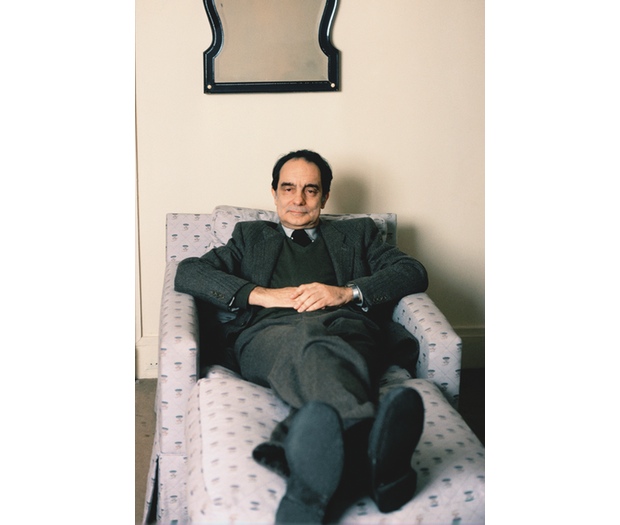This is how you have changed since yesterday, you who insisted you preferred a book, something solid, which lies before you, easily defined, enjoyed without risks, to a real-life experience, always elusive, discontinuous, debated. Does this mean that the book has become an instrument, a channel of communication, a rendezvous?
Opening a path for yourself, with a sword's blade, in the barrier of pages becomes linked with the thought of how much the word contains and conceals: you cut your way through your reading as if through a dense forest.
*
You try to picture how the world might appear, this world dense with writing that surrounds us on all sides, to someone who has learned not to read.
"I like to know that books exist that I will still be able to read . . ." she says, sure that existent objects, concrete albeit unknown, must correspond to the strength of her desire. How can you keep up with her, this woman who is always reading another book besides the one before her eyes, a book that does not yet exist, but which, since she wants it, cannot fail to exist?
The professor is there at his desk; in the cone of light from a desk lamp his hands surface, suspended, or barely resting on the closed volume, as if in a sad caress.
"Reading," he says, "is always this: there is a thing that is there, a thing made of writing, a solid, material object, which cannot be changed, and through this thing we measure ourselves against something else that is not present, something else that belongs to the immaterial, invisible world, because it can only be thought, imagined, or because it was once and is no longer, past, lost, unattainable, in the land of the dead. . . ."
"Or that is not present because it does not yet exist, something desired, feared, possible or impossible," Ludmilla says. "Reading is going toward something that is about to be, and no one yet knows what it will be. . . ." (There, now you see the Other Reader leaning forward to peer beyond the edge of the printed page at the ships of the rescuers or the invaders appearing on the horizon, the storms. . . .) "The book I would like to read now is a novel in which you sense the story arriving like still-vague thunder, the historical story along with the individual's story, a novel that gives the sense of living through an upheaval that still has no name, has not yet taken shape. . . ."
You are in bed together, you two Readers. So the moment has come to address you in the second person plural, a very serious operation, because it is tantamount to considering the two of you a single subject. I'm speaking to you two, a fairly unrecognizable tangle under the rumpled sheet.
*
I stop before I succumb to the temptation to copy out all of Crime and Punishment. For an instant I seem to understand the meaning and fascination of a now inconceivable vocation: that of the copyist. The copyist lived simultaneously in two temporal dimensions, that of reading an that of writing; he could write without the anguish of having the void open before his pen; read without the anguish of having his own act become concrete in some material object.








